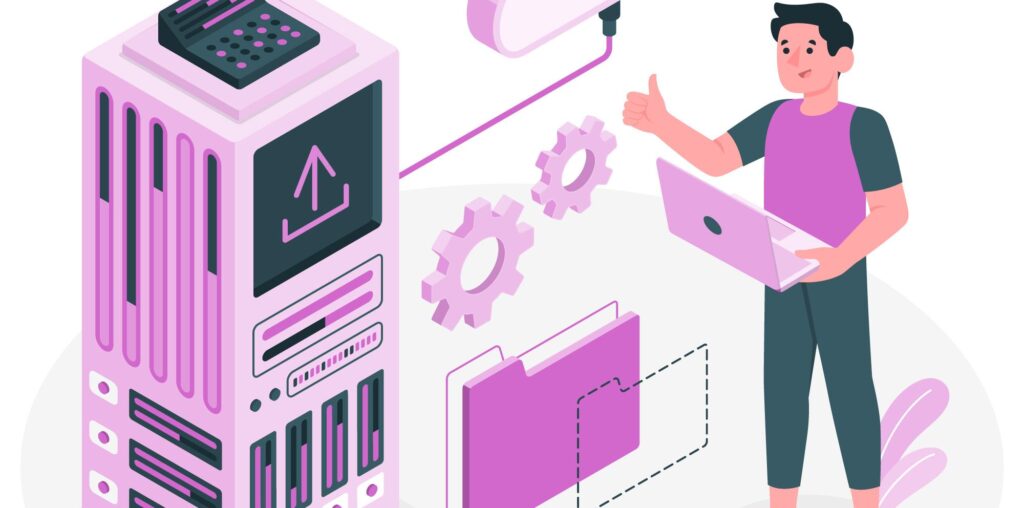In today’s data-driven world, the success of businesses often hinges on how effectively they utilize vast amounts of information. Enter data annotation—a crucial process that turns raw data into valuable insights. But with so much to manage, many companies find themselves overwhelmed by the sheer volume of work involved in annotating their datasets.
Outsourcing to a data annotation service can be a game-changer. It allows you to focus on your core competencies while experts handle the intricacies of labeling and categorizing your data. This not only saves time but also enhances accuracy, leading to better outcomes for your projects.
Whether you’re diving into machine learning or enhancing user experiences through personalized services, understanding how to outsource effectively is key. Let’s explore some valuable tips that will empower you to make informed decisions when partnering with a data annotation service.
Understanding Data Annotation and Its Importance
Data annotation is the process of labeling data to make it understandable for machine learning algorithms. This involves tagging images, transcribing audio, or categorizing text. Without proper annotation, machines struggle to learn from raw data.
The importance of data annotation cannot be overstated. It serves as the foundation for training models that perform tasks like image recognition and natural language processing. Accurate annotations ensure that algorithms can recognize patterns and make informed decisions.
In industries such as healthcare and finance, precise annotations lead to better outcomes—helping with diagnosing diseases or predicting market trends. Moreover, high-quality annotated datasets contribute significantly to the overall efficiency of AI systems.
As businesses increasingly rely on intelligent solutions, investing in robust data annotation processes becomes essential for achieving success in a competitive landscape.
Benefits of Outsourcing to a Data Annotation Service
- Outsourcing to a data annotation service offers numerous advantages that can significantly enhance your project outcomes. One of the primary benefits is access to specialized expertise. These services employ trained professionals who understand the nuances of various data types, ensuring high-quality annotations.
- Cost efficiency is another compelling reason. By outsourcing, companies reduce overhead costs associated with hiring and training in-house staff. This allows businesses to allocate resources more strategically.
- Scalability also plays a crucial role. Data annotation services can quickly adapt to fluctuating workloads, accommodating spikes in demand without compromising quality or timelines.
- Moreover, these services often leverage advanced technology and tools that streamline the annotation process. This technological edge leads to faster turnaround times while maintaining accuracy.
- Partnering with experts means you can focus on core business functions rather than getting bogged down by time-consuming tasks like data labeling.
Factors to Consider When Choosing a Data Annotation Service
Selecting the right data annotation service requires careful consideration. Start by assessing their expertise in your specific industry. Different sectors have unique requirements, and a provider familiar with your field can deliver better results.
Next, examine the quality assurance processes they have in place. A robust QA system ensures that annotations meet high standards and reduces errors significantly.
Scalability is another crucial factor. As your project grows, so will your needs for data annotation. Choose a service that can adapt to increased workloads without sacrificing quality or turnaround times.
Additionally, consider their technology stack. Advanced tools may enhance efficiency and accuracy in the annotation process.
Communication matters greatly in outsourcing relationships. Ensure the service offers clear channels for updates and feedback throughout the project lifecycle to maintain alignment on goals.
Types of Data Annotation Services Available
- Data annotation services come in various forms, each tailored to specific needs.
- One common type is image annotation, where images are labeled for tasks like object detection or segmentation. This service is essential for training computer vision models.
- Text annotation is another popular option. It involves categorizing text data into relevant tags or sentiments. Businesses use this service to enhance natural language processing capabilities.
- Audio and video annotations also play a crucial role in data preparation. Audio annotations can identify speaker changes or transcribe spoken content, while video annotations often involve tracking objects across frames.
- For those dealing with complex datasets, 3D point cloud annotation provides invaluable insights by labeling dimensions and spatial relationships within the data.
- Understanding these different types of data annotation services allows companies to select the right fit for their projects and streamline the development process effectively.
Best Practices for Working with a Data Annotation Service
Establish clear communication from the start. Share your project goals and expectations with the data annotation service. This helps align their efforts with your vision.
Provide detailed guidelines for annotators. Include specific instructions, examples, and any relevant context to ensure consistency across the annotations.
Set up regular check-ins to monitor progress. These meetings can address challenges early on and keep everyone aligned on timelines and quality standards.
Utilize feedback loops effectively. Constructive feedback helps improve accuracy in real-time, making it easier for annotators to understand your requirements better.
Be open to collaboration. Engaging with the annotation team fosters a partnership that enhances both quality and efficiency.
Consider scalability as needs evolve over time. A flexible approach allows you to adapt without compromising data quality or speed of delivery.
Case Studies: Successful Companies Who Have Outsourced to a Data Annotation Service
Numerous successful companies have recognized the value of outsourcing to a data annotation service. For instance, a leading autonomous vehicle company partnered with an annotation provider to enhance its image recognition algorithms. By leveraging expert annotators, they improved their model’s accuracy significantly.
Another notable case is in healthcare technology. A prominent health tech firm outsourced its medical imagery labeling tasks. This allowed them to rapidly scale up their operations while ensuring high-quality annotations for training AI models used in diagnostics.
E-commerce platforms are also reaping benefits from these services. One global retailer utilized data annotation to refine product categorization and improve customer recommendations, boosting user engagement and sales conversions.
These examples illustrate how diverse industries harness external expertise to streamline processes and drive innovation through precise data labeling.
Conclusion: How Outsourcing Can Improve Your Business’s Efficiency and Accuracy
Outsourcing to a data annotation service can significantly enhance your business’s efficiency and accuracy. By leveraging expert services, you free up valuable internal resources that can be redirected towards core activities that drive growth. The precision offered by specialized teams ensures higher quality datasets, which are crucial for training AI models effectively.
Moreover, outsourcing allows for scalability. As your project demands increase or change, an external team can adapt more readily than an in-house staff might. This flexibility enables businesses to tackle larger projects without the overhead of hiring and training new employees.
Additionally, partnering with a dedicated data annotation service often leads to better turnaround times. Experts who specialize in this field bring refined processes and tools tailored specifically for efficient data extraction and labeling.
The decision to outsource is not just about cost savings; it’s about enhancing operational capabilities while ensuring high standards of quality in your data management efforts. Thus, embracing a strategic approach to outsourcing could very well be the key to unlocking your business’s potential in today’s competitive landscape.

